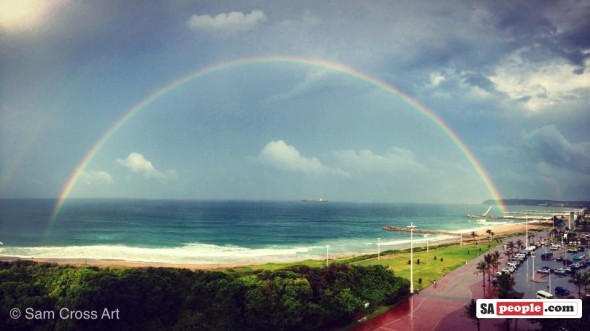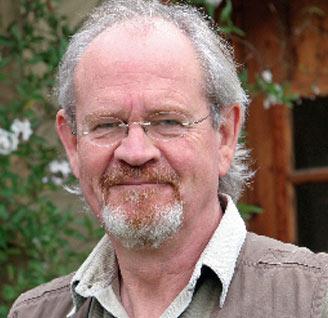
OPINION: A Rainbow Nation in Pieces
With insensitivity from some white people and skaam-kwaad from some black people…South African writer Max du Preez suggests perhaps we not a rainbow nation after all, and it’s time to call South Africa the Mosaic Nation. A Rainbow Nation in Pieces by Max du Preez Is it a good or a bad thing to stir the […]

With insensitivity from some white people and skaam-kwaad from some black people…South African writer Max du Preez suggests perhaps we not a rainbow nation after all, and it’s time to call South Africa the Mosaic Nation.

A Rainbow Nation in Pieces by Max du Preez
Is it a good or a bad thing to stir the racial pot in South Africa?

The public arguments around symbolism, history and racism the last few weeks have brought out the worst in white and black participants. But perhaps it is part of a catharsis that we haven’t properly experienced since liberation 21 years ago – the price we’re paying for a smooth transition to democracy.
I think we have to accept that the dream of a rainbow nation now lies in pieces at our feet.
If this Mandela/Tutu concept could not withstand the test of time, isn’t it time for it to disappear so that we can build something else in its place? Is it time for a paradigm shift?
It was thoroughly depressing, though, to see otherwise reasonable people withdraw into racial trenches from where they attacked and defended their own “group”. It’s as if we haven’t made any progress since 1994 in getting to know each other’s fears, frustrations and anger.
Anger and Frustration
Harsh, hurtful words were exchanged the last few weeks. My first reaction was that it did more damage than good and simply hardened attitudes. Or did it?
It is crystal clear that there is an immense reservoir of black anger and impatience at the status quo. On the white side there is a groundswell of frustration at remaining the target of all resentment so long after the formal end of apartheid.
Many black voices argue that the social and economic environment in the country is still dominated by the tiny white minority. It is as experienced as a basic injustice, an assault on black dignity and pride and a message that they’re still regarded as inferior.
Many declare that this can be blamed on the white community’s racism, arrogance and resistance to reconciliation.
Some take it a bit further and say that all symbols of white history before 1994 should be destroyed and their wealth be redistributed.
Few white voices have shown any understanding of these frustrations of dreams deferred. And then they do exactly what reinforces the prejudices against them: they make sarcastic comments about Africa and her people’s failures and rub the achievements of the so-called European civilisations under black noses. And so the vicious cycle continues.
I was shocked recently at this white insensitivity and arrogance, even if it is true that it is a result of fear and ignorance. It really appears as if they believe that now that the political power has shifted from white to black, nothing else has to change.
But I’m also surprised how few black voices are prepared to publicly admit that we would not have had today’s polarised conversations if the ANC governments since 1994 had governed with more vision and efficiency and with less corruption, private empire building, nepotism and wasting of resources.
During the weeks that these debates were raging, newspapers were full of reports about gross corruption in government, manipulation of institutions of our democracy, billions spent on aircraft and super luxury vehicles for politicians, a complete disregard by politicians and civil servants for ordinary people in townships and squatter camps, and a reminder of what happened during the Marikana Massacre.
And yet the focus was solely on white privilege and intransigence.
As someone tweeted this week, and I thought it was a legitimate point to raise: “If statues are symbols of oppression, what is dysfunctional hospitals, mud schools, collapsed water and electricity infrastructure?”
But I can understand why it could be difficult for many black people to admit to white counterparts that the black-dominated government was failing. There is a good Afrikaans expression for this: skaam-kwaad. A mixture of shame and anger.
A Mosaic Nation
Some voices – it was all over Facebook and Twitter – then went one step further: you whites are foreigners, you don’t belong here. Shut up and go away or we’ll make you. Sigh.
The voices of the wild and irrational ones among us will be loudest in the days ahead. The ground is fertile for the mushrooming of the EFF and its ilk.
The voices of reason on all sides will have to work much harder to be heard over the shouting. Emotional over-reactions will be counter-productive.
It turns out we were not a rainbow nation after all. Perhaps we should borrow a term from the long-time former mayor of Jerusalem, Teddy Kollek – without judging his politics or legacy of course.
Kollek once said his dream for his troubled and divided city was to be a mosaic of different cultures where the tension is benign and invigorating and not threatening to destroy the city.
Perhaps the best we can do for now is to be just a mosaic nation. But we should never abandon the noble dream of one day achieving that elusive ideal of a non-racial society.
This article originally appeared on News24 – view here – and is republished here with kind permission of Max du Preez.
Follow Max du Preez on Twitter: @MaxduPreez